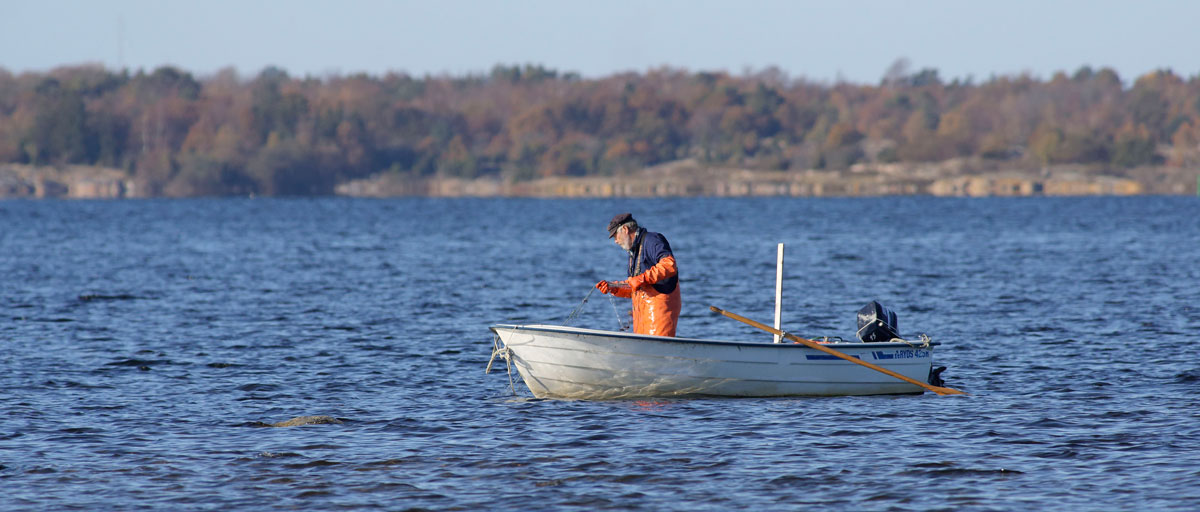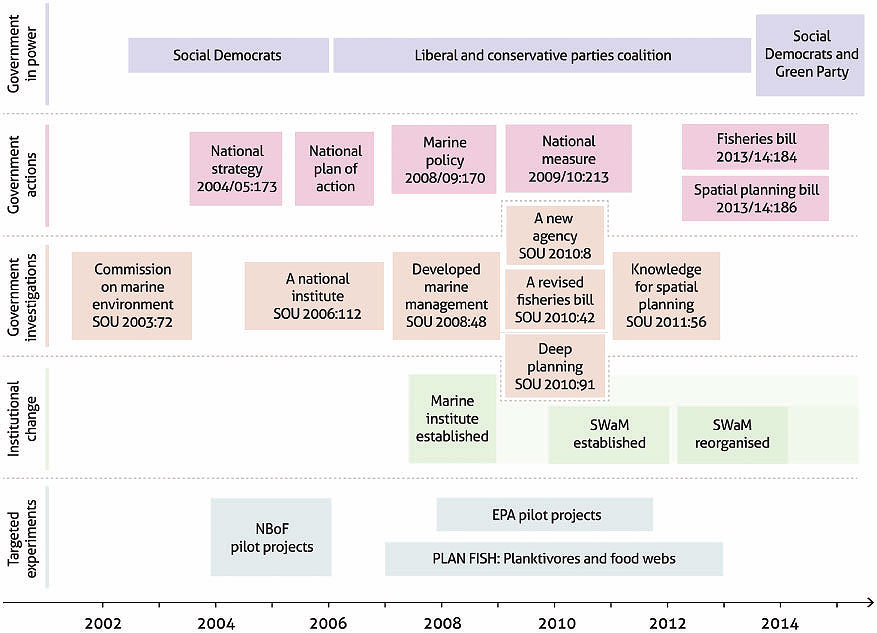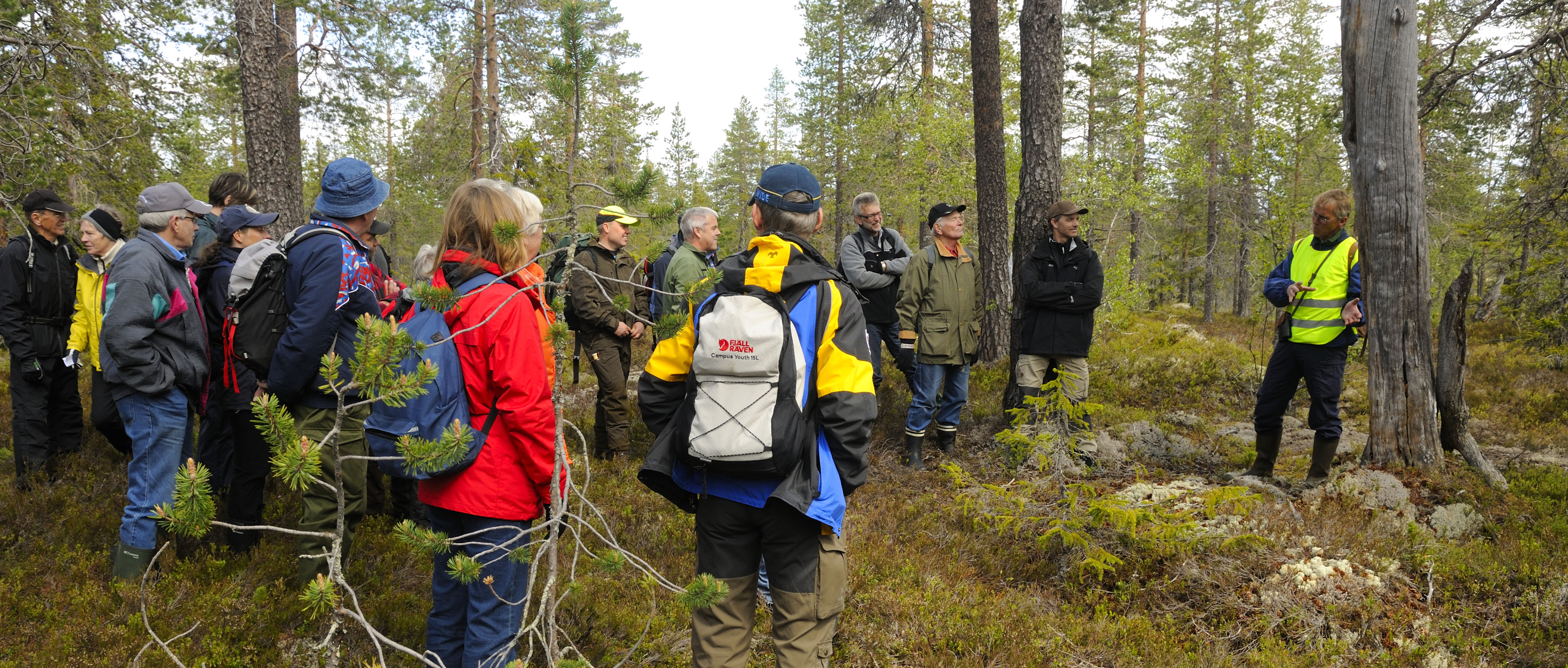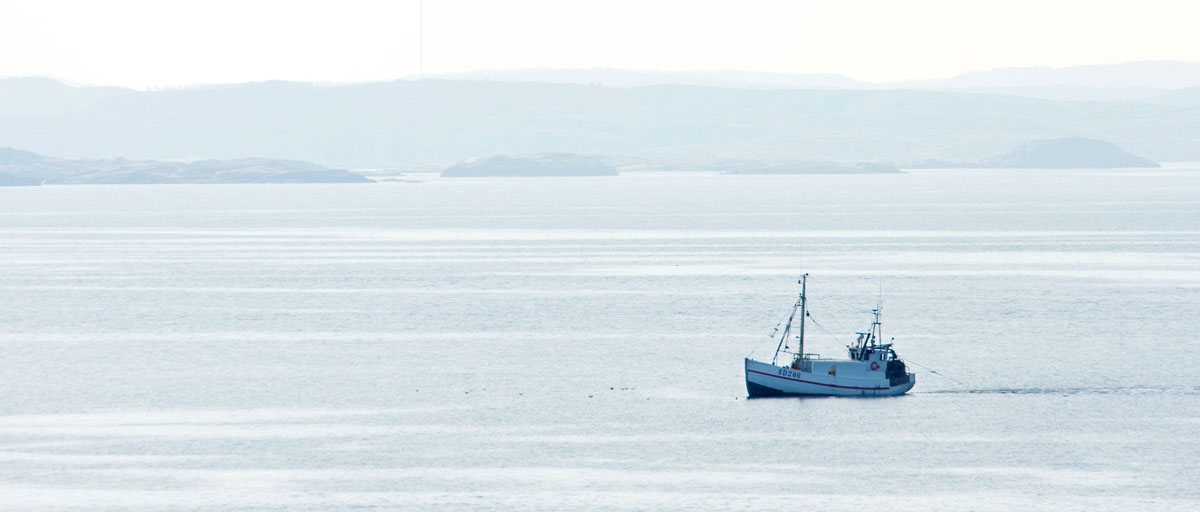
In 2002 the Swedish government established the Commission of the Marine Environment (CME) to propose measures for a substantial policy change towards ecosystem-based management. Since then the process of change has moved along steadily but at a slow pace. Photo: T. Svensson/Azote
Bildtext får vara max två rader text. Hela texten ska högerjusteras om den bara ska innehålla fotobyline! Photo: B. Christensen/Azote
ECOSYSTEM MANAGEMENT
Tinkering with a tanker
Sweden is slowly moving towards more ecosystem-based marine management, but more can be done
- The Swedish government established the Commission of the Marine Environment (CME) in 2002 to propose measures for a policy change towards ecosystem-based management
- The policy change has been slow with a lag in noticeable effects
- To push the process along political leadership and increased coordination between state and non-state actors is required
There is increasing recognition that sector-based management is insufficient and that science, policy and practice need to work together to find ways of dealing with complex environmental problems. With this comes a demand to shift to an ecosystem-based management approach. However, inflexible institutions, power dynamics and limited learning, among other things, slow the process down.
In 2002 the Swedish government established the Commission of the Marine Environment (CME). The task was to propose measures for a substantial policy change towards ecosystem-based management. In a recent study published in ICES Journal of Marine Sciences centre researchers Henrik Österblom and Jonas Hentati-Sundberg together with colleagues have looked at what progress has been made between 2002 and 2015.
Their conclusion is that the process of change towards more holistic, adaptive and ecosystem-based management has moved along steadily but at a slow pace.
The changes we see resemble minor adjustments to the course of a tanker. National marine management is changing course, but there is a path dependency in the trajectory we are on so the effect of the adjustments happens very slowly. It is hard to say how, or if, the most recent adjustments will affect where we are heading.
Henrik Österblom, co-author
Political leadership
While case studies show that policy entrepreneurs and bridging organisations play key roles in shifting towards an adaptive an ecosystem-based management approach there is also a need for political leadership in guiding and supporting the process.
During the time period covered by the study, Sweden experienced two shifts in political leadership: From a social democratic government to one of a liberal-conservative coalition and on to a coalition between the social democrats and the green party.
"Shifts in government and political ambition to some part resulted in fragmentation of decisions that regard the environment in general and the marine environment in particular,” says Hentati-Sundberg. “We found that there is a gap between the expert-based advice that has been presented and the political decisions that have been made."
To compensate for the limited political leadership around marine issues, non-state actors have become increasingly active. They have however not to a large extent coordinated their activities, and have had limited success in stimulating change.

Summary of key Swedish marine policy and practice developments. Click on illustration to access article
Moving beyond tinkering
”We argue that this period has been one of preparing for change. Policy-makers, practitioners and scientists have worked to improve the chances of successfully adopting an ecosystem-based approach, and there prospects are now much better than they were 15 years ago,” Österblom says.
“What is needed now is political leadership, coordination and bold experiments to move the policy changes along.”
The authors suggest that Sweden now needs to invest in collaborative learning between agencies that work for marine management. They also encourage scientific networks and NGOs to find ways to join forces and coordinate their efforts, for bigger impact.
"Sweden should engage in national and international innovation investments around marine issues to find ways of moving beyond the small, incremental changes that have been achieved so far," Hentati-Sunberg concludes.
"Combining visions and objectives from political leaders with the creative power from local and regional actors in these investments would provide international leadership, enable a national shift in management and stimulate innovative research. And ultimately improve marine resource management."
Methodology
The authors conducted a review of government documents, scientific reports, and of changes in institutions, legislation and public opinion, as well as 18 interviews with politicians, parliamentarians and experts. They then compared their results to consensus elements and key principles of the ecosystem-based management approach for an evaluation of the Swedish process.
Österblom, H., Hentati-Sundberg,J., Nevonen, N., Veem, K. 2017. Tinkering with a tanker—slow evolution of a Swedish ecosystem approach. ICES Journal of Marine Science, 74(1), 443–452. doi:10.1093/icesjms/fsw232
Henrik Österblom's research focuses on globalization and marine social-ecological systems, in particular how fisheries and marine ecosystems are managed. He is also deputy science director at the Stockholm Resilience Centre
Jonas Hentati-Sundberg's research focuses on the social-ecological dynamics of marine system, with particular focus on fisheries








